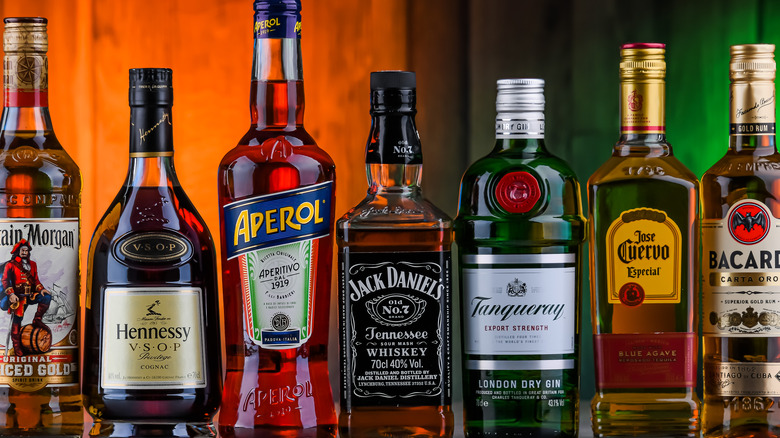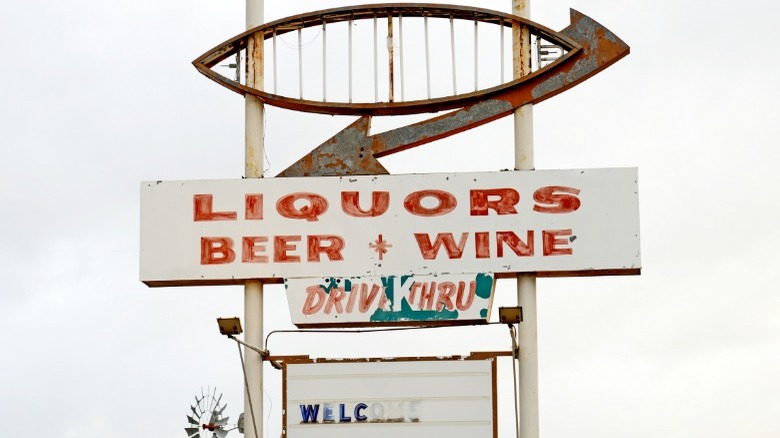How Drive-Thru Liquor Stores Became An Iconic Sip Of American Drinking Culture
Drive-thrus for our favorite fast food or coffee chains are an iconic part of American culture. Chances are, you might not be as familiar with drive-thru liquor stores if you don't live in a state where they are legal. However, they do exist and are legal in 30 states. According to The Seattle Times, The Copper Still, the first drive-thru liquor store, is thought to have been established in the 1950s in Hopkinsville, Kentucky, and still exists in the town today. Ben S. Wood was the original owner of The Copper Still, and his son believes his father wanted to sell alcohol in a drive-thru fashion because of the social norms of the times when openly drinking was slightly taboo.
As the decade progressed, drive-thru liquor stores appeared in other states and can now be found from Arizona to North Carolina. When you picture a drive-thru, you might imagine a car pulling up to a window on the side of a building, but some of these liquor drive-thrus have customers pull their vehicles through the middle of their stores. Employees then assist and fill the car with whatever alcohol the customer requests.
Why go to a drive-thru liquor store?
So why would you go to a drive-thru liquor store and not simply head to your local grocery store? Their main selling point is how convenient they are. You don't even have to get out of your car. You could also avoid common mistakes people make when purchasing liquor by consulting drive-thru employees, who are likely more knowledgeable and can help you pick what to buy. Certain alcoholic products shouldn't be purchased at a grocery store, so you might be better off hitting the drive-thru for things like tequila or beer.
Frequenting these iconic pieces of American liquor history can also help keep them in business. Melrose Liquors, a drive-thru location near Phoenix, Arizona, originally opened in 1957. In 2017, it was supposed to be torn down, but the demolition was halted when the public spoke out. By choosing to drive-thru instead of walk-in, you could also be helping to save a piece of history.

